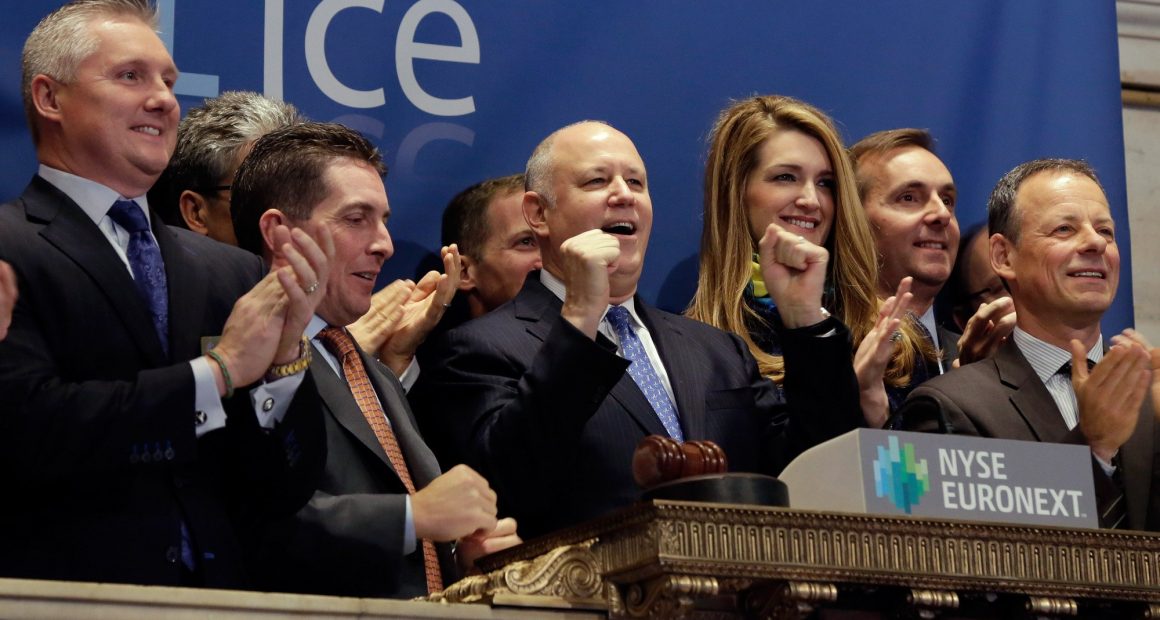Targeting institutional players
One year after the announcement from Intercontinental Exchange (ICE), Bakkt says it’s been cleared to launch. This includes custody and physically-delivered daily and monthly bitcoin futures contracts. The custodian infrastructure is approved by the New York State Department of Financial Services (NYDFS) and the financial products are accepted by the CFTC with user testing initiated already.
The size of the futures contracts is 1 bitcoin, with a minimum block trade size of 10 contracts. All trading participants will need a futures commission merchant (FCM) who will clear members of ICE Clear US (ICUS). This will be so that they will be able to trade and clear the daily and monthly bitcoin futures. Today, we find well-known companies such as Barclays, Citigroup, JP Morgan, Credit Suisse and Morgan Stanley on the member list, these products are targeting institutional players.
A new benchmark price for bitcoin
CEO of Bakkt, Kelly Loefler, highlights the fact that Bakkt won’t rely upon unregulated spot markets for settlement prices. As reports suggest manipulative spot market activity, Bakkt futures products will be a transparent price discovery mechanism and basically act as the benchmark price for bitcoin. However, time will tell if Bakkt’s products can attract enough volume to behave as the leading indicator of the bitcoin price across all platforms and exchanges around the world.
Making bitcoin regulated
In addition to the more common monthly futures contracts, Bakkt will offer futures contracts with daily delivery. That is, buying a bitcoin futures contract, with the physical delivery of bitcoin in the Bakkt Warehouse the next day.
By doing this, Bakkt is doing “inverse regulatory arbitrage”, creating a federally regulated market that mimics the spot market. Normally, regulatory arbitrage is a situation in which a product is structured in a particular way to avoid regulation. Bakkt on the other hand has structured the product to be regulated.
In 2015, CFTC defined bitcoin as a commodity. In 2018, the same categorization was used by the U.S. District Court for the Eastern District of New York. “Virtual commodities” like bitcoin are categorized as “exempt commodities” and placed in the same category as metals and energy commodities, such as gold, silver, oil, and natural gas.
Spot markets (cash markets) for these “exempt commodities”, do not fall under the jurisdiction of the CFTC. This is most likely why Bakkt chose to include a daily bitcoin futures contract. They are now replicating the bitcoin spot market with next-day physically delivered futures contracts, and thereby managed to keep the market within CFTC oversight and regulation
This means that Bakkt will bring a regulated spot market to the institutional environment. Last week, Loefler highlighted how regulating exchanges differ from trading platforms, such as crypto spot markets in many respects, including risk management, compliance, and market surveillance.
Bakkt is creating an appealing platform for many large institutional players and will pave the way for new capital inflow to the crypto space.
Is Bakkt really backed?
Bakkt’s daily contracts will be margined according to this newly released FAQ document. The futures contracts are expected to be approximately 37% margined. This is quite a healturn, as Loefler stated the following one year ago:
“Specifically, with our solution, the buying and selling of bitcoin are fully collateralized or pre-funded. As such, our new daily bitcoin contract will not be traded on margin, use leverage or serve to create a paper claim on a real asset.”
Bakkt has not given any details on how the leverage situation will be managed in practice. This is expected to be released in the coming weeks, Loefler stated to Coindesk. Regardless, it could look like Bakkt isn’t really backer after all.





